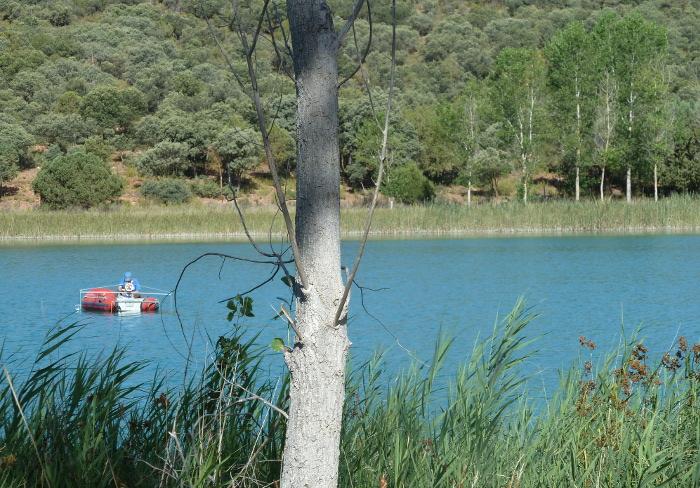We studied the responses of nine phytoplankton communities from Mediterranean lakes to a complex scenario of global change.

We studied the responses of nine phytoplankton communities from Mediterranean lakes to a complex scenario of global change. We found that future pCO2, nutrient inputs and vertical mixing conditions reduced by 40-60% the negative effects of solar radiation on primary productivity. Moreover, our results show that this attenuating effect was higher in opaque than in clear lakes. These results illustrate that although global change can reduce primary productivity in freshwater ecosystems, multiple interacting global-change drivers can attenuate the effects of highly harmful drivers, such as solar radiation.
This work is published in Scientific Reports, from the Springer-Nature group.
Complete reference
Funding
This work was funded by Ministerio de Economía y Competividad (MINECO) and Fondo Europeo de Desarrollo Regional (MICROSENS-CGL2011-23681 y METAS-CGL2015-67682-R), Medio Ambiente, Rural, and Marino (PN2009/067), Junta de Andalucía (Excelencia CVI-02598 and P09-RNM-5376), and Fundación Playa Unión (Argentina).